






Our speakers and panelists, who span multiple disciplines, include Rediet Abebe (University of California, Berkeley), Daryl R. DeFord (Washington State University), Sandra González-Bailón (University of Pennsylvania), Elizabeth Munch (Michigan State University), Nancy Rodríguez (University of Colorado, Boulder), Shelby M. Scott (University of Tennessee, Knoxville), Joseph H. Tien (Ohio State University), Chad M. Topaz (Williams College), and Jennifer N. Victor (George Mason University).
The spread of memes and misinformation on social media, political redistricting, pedestrian movement in crowds, and the dynamics of voters during elections are among the many things that people study in the field of complex systems. All of these phenomena involve the interactions of individual parts, which come together to produce rich, complex collective dynamics. Obtaining a better understanding of how these interacting parts–whether they are Twitter accounts, pedestrians, or voters–respond to each other and to their environment also has important implications for society. In this Short Course, we will introduce participants to some of the mathematical and computational techniques that researchers and policy-makers use to shed light on problems in complex systems, with a particular focus on those that arise in social and political settings.
The mathematical study of complex social systems draws on many subfields, including data-driven modeling, data analysis, network science, and topology and geometry. We will overview these mathematical methods, while also equipping participants with associated computational skills and discussing ways of engaging in cross-disciplinary research. We will present and discuss problems that are motivated by public opinion, political elections, social media, and social advocacy. Through a combination of survey lectures, software tutorials, panels, and community-building discussions, our goals are (1) to introduce participants to complex social systems and (2) to engage and mentor people who are interested in pursuing research in this area.
In our virtual Short Course, participants will have a chance to interact with the material and its underlying theory, its applications to diverse social systems, and practical computation. We will pair survey talks on mathematical methods with software tutorials in Python (one on networks and one on topological techniques). To make the software tutorials accessible to those who do not have prior experience with Python, we will provide instructions on downloading software and all relevant toolboxes prior to the Short Course.
Research in complex systems often involves working with data, so we will discuss data ethics and give an overview of different approaches to developing data-driven mathematical models. To help empower participants to communicate across disciplines, we will engage with a panel of multidisciplinary experts on complex social systems. The panelists will share their advice on developing collaborations that span mathematics, political science, sociology, and other fields.
As the first virtual AMS Short Course, our workshop will span three days, with about 4–5 hours of content each day. To be broadly accessible, our course will have a flexible structure, with large tutorials, and (for those who are interested in engaging further) daily discussions in small groups with the organizers and other participants. Our objective is for nonspecialists and early-career researchers to leave the Short Course with new ideas and questions, the foundations for an engaged research and mentoring community, and a springboard for future research in the mathematics and computation of complex social systems.
 Heather Z. Brooks is an assistant professor in the Department of Mathematics at Harvey Mudd College. She studies complex systems with tools from network theory and dynamical systems. Her research is in diverse applications, including polarization on social media, group and committee diversity, and youth gang reduction programs in LA.
Heather Z. Brooks is an assistant professor in the Department of Mathematics at Harvey Mudd College. She studies complex systems with tools from network theory and dynamical systems. Her research is in diverse applications, including polarization on social media, group and committee diversity, and youth gang reduction programs in LA. Daryl R. Ford is an assistant professor in the Department of Mathematics at Washington State University. In his research, he applies algebraic and combinatorial methods to problems in data analysis, with a special focus on political redistricting and gerrymandering.
Daryl R. Ford is an assistant professor in the Department of Mathematics at Washington State University. In his research, he applies algebraic and combinatorial methods to problems in data analysis, with a special focus on political redistricting and gerrymandering. Michelle Feng is a John S. McDonnell Foundation Postdoctoral Fellow in the Department of Computing + Mathematical Sciences at California Institute of Technology. Her research is on the applications of topological methods to data with strong spatial components, including voting patterns, gerrymandering, neighborhood segregation, and city organization.
Michelle Feng is a John S. McDonnell Foundation Postdoctoral Fellow in the Department of Computing + Mathematical Sciences at California Institute of Technology. Her research is on the applications of topological methods to data with strong spatial components, including voting patterns, gerrymandering, neighborhood segregation, and city organization.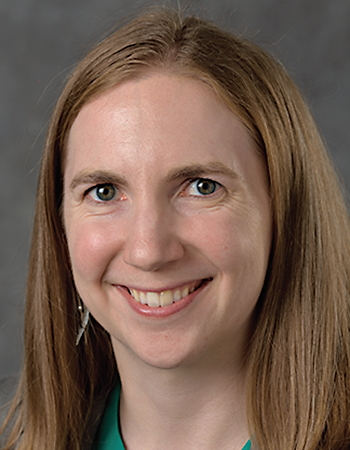 Elizabeth Munch is an assistant professor at Michigan State University in the Department of Computational Mathematics, Science, and Engineering and the Department of Mathematics. Her research area is applied topology and topological data analysis (TDA).
Elizabeth Munch is an assistant professor at Michigan State University in the Department of Computational Mathematics, Science, and Engineering and the Department of Mathematics. Her research area is applied topology and topological data analysis (TDA). Mason A. Porter is a professor in the Department of Mathematics at UCLA. He is also an affiliated faculty member of UCLA's Center for Social Statistics.
Mason A. Porter is a professor in the Department of Mathematics at UCLA. He is also an affiliated faculty member of UCLA's Center for Social Statistics. Alexandria Volkening is an NSF-Simons Fellow in the NSF-Simons Center for Quantitative Biology and the Department of Engineering Sciences & Applied Mathematics at Northwestern University. Her research focuses on complex systems and emergent behavior, and she develops and analyzes models for a range of applications, including pattern formation, election dynamics, and crowd movement.
Alexandria Volkening is an NSF-Simons Fellow in the NSF-Simons Center for Quantitative Biology and the Department of Engineering Sciences & Applied Mathematics at Northwestern University. Her research focuses on complex systems and emergent behavior, and she develops and analyzes models for a range of applications, including pattern formation, election dynamics, and crowd movement.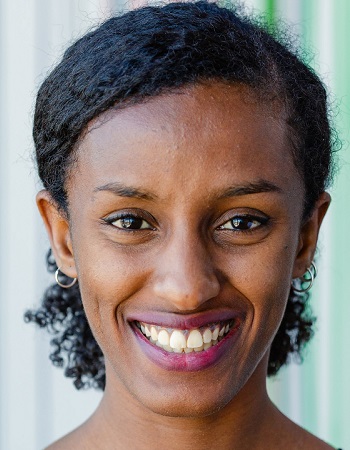 |
Rediet Abebe is a Junior Fellow at the Harvard Society of Fellows and an incoming Assistant Professor of Computer Science at UC Berkeley. Her research falls broadly in the fields of algorithms and artificial intelligence, with a focus on equity and justice concerns. Her work has provided new mathematical and computational frameworks for questions related to poverty and inequality. As part of her research mission, she co-founded and co-organizes Mechanism Design for Social Good (MD4SG), an interdisciplinary, multi-institutional research initiative. | 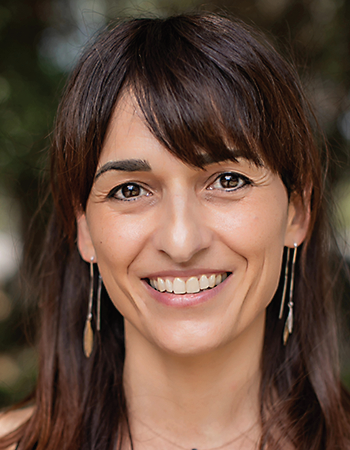 |
Sandra González-Bailón is an associate professor in the Annenberg School for Communication at the University of Pennsylvania. Her research applies computational social-science tools to the analysis of political communication, including social-media activity, information diffusion, political mobilization, and news consumption. |
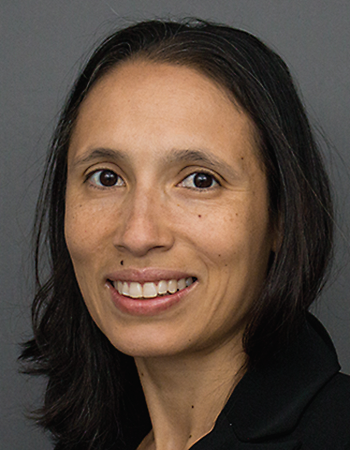 |
Nancy Rodríguez is an assistant professor in the Department of Applied Mathematics at the University of Colorado, Boulder. Her research is in partial differential equations, often with applications to social, biological, or ecological systems. | 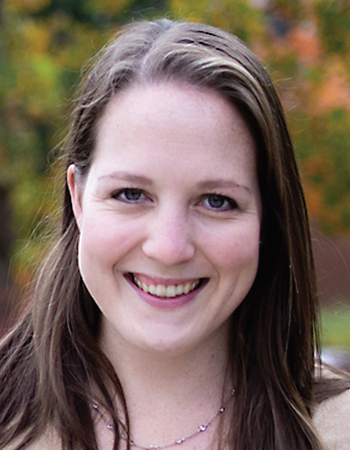 |
Shelby M. Scott is a PhD student in ecology and evolutionary biology at the University of Tennessee, Knoxville. She develops cellular-automata and statistical models, with a particular focus on better understanding gun violence in Chicago, IL. |
 |
Joseph H. Tien is an associate professor of mathematics at The Ohio State University. His work spans infectious-disease dynamics, network science, and the application of data-science methods to support civic engagement. | 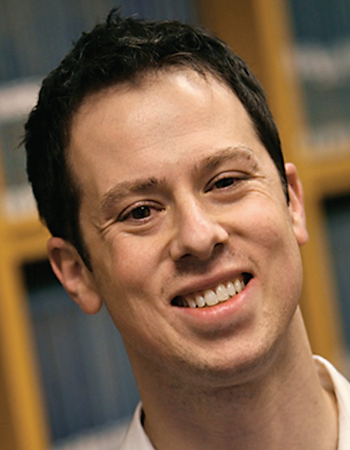 |
Chad M. Topaz is a professor of mathematics at Williams College and the founder of the Institute for the Quantitative Study of Inclusion, Diversity, and Equity. His research area is data science and dynamical systems, often with applications to social justice. |
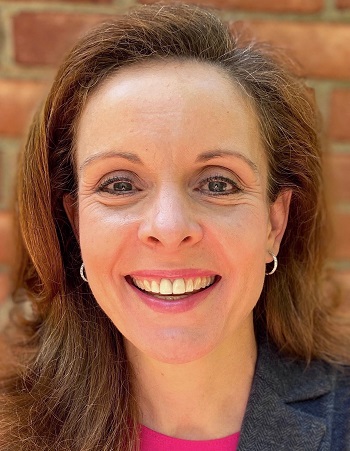 |
Jennifer N. Victor is an associate professor of political science at George Mason University. Her work focuses on campaign finance, election dynamics, social networks, lobbying, and other problems related to U.S. politics. | ||